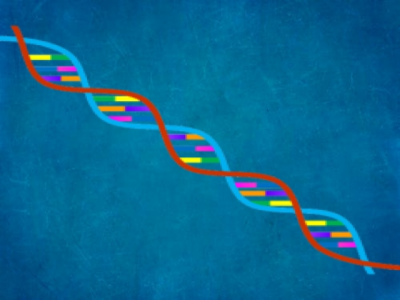Are you very meticulous about maintaining your oral hygiene, yet you still have teeth cavities and inflammation of gums? If yes, then don’t worry, you may not entirely be at fault here. Instead, it might be your genes! Just like how your genes determine your personality and physical features. Variations in certain genes may also expose you to a greater risk of having dental problems. This article explains how your genes play a role in the development of tooth cavities and other periodontal problems.
 GENETIC VARIATIONS
GENETIC VARIATIONS
According to a research study conducted at the Pittsburgh School of Dental Medicine. Certain genetic variations in individuals may responsible for causing tooth decay and gum problems. Dr. Alexendre Viera, an Assistant Professor at Pitt and one of the investigators in this study. He believes that rate of advancement of teeth cavities is also influenced by variations in a gene called the beta-defensin 1 (DEFB1). The results of their study show that the DEFB1 gene plays a defensive role against teeth cavities by acting as the first line of immunity against harmful bacteria which are prone to the colonization of the teeth and causing dental caries.
FIRST STUDY
In their first study, the researchers used data obtained from the central registry and the DNA repository of their institute. Their objective was to assess whether polymorphism or variation of the DEFB1 gene had any association with an increased risk of development of teeth cavities. For this purpose, they went through anonymous dental records of roughly 300 patients. They obtained their salivary samples of each patient for genetic analysis. All of the obtained salivary samples contained at least one of the three variants of the DEFB1 gene, namely G-20A, G-52A, and C44G.
The results of their first study also showed that the number of decayed, missing or restored teeth (DMFT) was five times higher in individuals who had the G-20 variant in their saliva exposed than the individuals who did not carry this gene variant. Simply put, they were at a greater risk of developing teeth cavities than the individuals having the other two variants of DEFB1 genes. In fact, individuals who had the G-52A variant had a lower number of decayed, missing or filled teeth, implying that they had better oral health status.
SECOND JOURNAL
In their second journal, the researchers studied salivary samples of 389 people who belonged to 55 families. They to look for links between the gingival problems and genetic predisposition. Their results showed that there was an association between the FAM5C gene and higher incidence of aggressive periodontitis. A condition characterized by the rapid, generalized destruction of the gum tissues and surrounding jawbone. They found evidence of expression or activation of the FAM5C genes in the saliva of individuals who had this disease. Interestingly, the FAM5C was also recently found to play a role in the development of the cardiovascular disease. Since both these conditions develop as a result of underlying inflammation. It might be possible that there is a link between cardiovascular problems and periodontal inflammation.
Despite findings, it must be emphasized that the progression of dental caries and gingival problems is dependent on many factors. Therefore, your genes alone cannot affect your oral health. Other factors, such as poor brushing technique and unhealthy diet intake are also in play. No doubt you can control or modify your genes, but you prevent or at least minimize the incidence of teeth cavities and periodontal issues by taking care of factors which are under your control – meticulous oral hygiene maintenance, intake of tooth-friendly foods and regular visits to your dentist.



